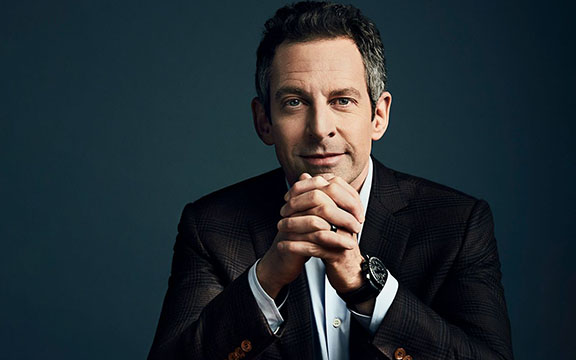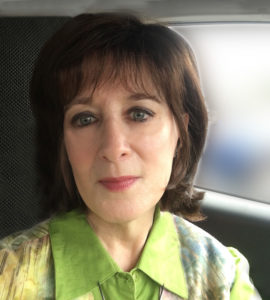 We live in challenging times and don’t need more confusion in our lives by misunderstanding spiritual precepts and teachings. While it is true that in the time of Sri Patanjali (whose systematization of Yoga provides Yoga with its classical text, The Yoga Sutras of Patanjali), most of those studying classical Yoga were forest dwelling renunciates and not householders living in the regular world. I don’t think we, as yogis today, can really afford the “luxury” of living in a cave! If we are not able to apply the Yoga teachings and practices to our daily lives—every aspect of them—then how do they remain vital and most meaningful in a modern world?
We live in challenging times and don’t need more confusion in our lives by misunderstanding spiritual precepts and teachings. While it is true that in the time of Sri Patanjali (whose systematization of Yoga provides Yoga with its classical text, The Yoga Sutras of Patanjali), most of those studying classical Yoga were forest dwelling renunciates and not householders living in the regular world. I don’t think we, as yogis today, can really afford the “luxury” of living in a cave! If we are not able to apply the Yoga teachings and practices to our daily lives—every aspect of them—then how do they remain vital and most meaningful in a modern world?
Martin Luther King, Jr. was both a Baptist minister and social activist. Most of us don’t question how that could be possible or wonder: Why didn’t he just preach and pray about racial equality and injustice. If he had true faith in God, wouldn’t he just trust in God? Rev. King was not only a faithful Christian he was also deeply inspired by the teachings of Mahatma Gandhi, who practiced satyagraha, which means to seek truth and love while refusing, through nonviolent resistance, to participate in something you believe is wrong. So why would those who practice Yoga or meditation any other Eastern spiritual discipline see spiritual life and social activism as mutually exclusive? Because the world is an “illusion” so as spiritual seekers we shouldn’t focus on things that are mired in maya (Sanskrit term for “illusion”)?
Swami Satchidananda (founder of Integral Yoga and this magazine) had something to say on this subject: “Somebody may say to you that the world is an illusion, not real, and so they are not interested in getting involved. They just want to enjoy their peace and bliss. Personally, I feel that kind of attitude is not Yoga. The world doesn’t need that kind of peace.” What he and many modern sages point to is the need to understand two levels of truth: relative level truth and the highest level truth. We are essentially spiritual beings (highest truth) living in the material world (relative truth) and having a human experience. How we navigate these realities may just hold the key to success in the spiritual life—lived deeply, authentically, and compassionately.
It was the Buddhist psychologist John Welwood who first coined the term “spiritual bypassing,” which he defined as: “The tendency to use spiritual ideas and practices to sidestep or avoid facing unresolved emotional issues, psychological wounds, and unfinished developmental tasks.” Ken Wilber (a preeminent scholar of the Integral stage of human development; often called the “Einstein of consciousness studies”), refers to this phenomenon as “waking up vs. growing up.” Unless we can integrate both our spiritual and psychological nature, as well as the two realities in which we, as yogis and spiritual seekers, abide, we run the risk of spiritually bypassing—or in some way, absenting ourselves from leading socially engaged and compassionate lives.
Having lived in ashrams and spiritual community for the majority of my adult life, I’ve often seen long-term spiritual aspirants avoid getting involved in their communities or shying away from any type of social or political activism. One person I knew, who lived in a spiritual community for years, even promoted the idea that it wasn’t necessary to vote in any election because “karma determines everything anyway, the world is illusory, and I just want to focus on my spiritual evolution.” Any student of Integral Yoga (and hopefully any spiritual path) would be benefited to know what a Yoga master has to say about that type of attitude. Swami Satchidananda’s article, “If You are a Yogi, Should You Vote?” should set the record straight!

(Photo: Sam Harris, founder of the Waking Up app)
Sam Harris, Ph.D. (who has practiced meditation for more than 30 years and has studied with many Tibetan, Indian, Burmese, and Western meditation teachers, and created the Waking Up App) recently addressed these issues on an episode of his “Making Sense” podcast titled “An Insurrection of Lies.” Here are some excerpts from this podcast (all profanities removed due to Integral Yoga Magazine ethical guidelines), in which he eloquently and passionately addresses these issues—especially in light of criticism he received about why a “spiritual person” should be so concerned about current events:
I want to respond to one species of criticism I keep getting on social media. I think I should have cleared this up a long time ago because there is some conceptual confusion here. I keep hearing from people who are apparently contented users of the waking up app. Let me clear this up: If you think there is something about meditation—successful meditation—if you think there’s something about cutting through the illusion of the self or recognizing the nature of mind prior to concepts, if you think there’s some necessary contradiction between that project and caring about the kinds of problems [in our country] I’m talking about now, you’re confused. There is nothing incompatible between mindfulness and not wanting to lose a cyberwar, say. There is no contradiction. If you think that meditative insight should cause one not to care about the implosion of our democracy or about our ongoing failure to deal with civilizational challenges, if you think we get to not care about the world we’re building or wrecking the world that our children will be condemned to live in, it’s time to take your head out of your you know where.
Yes there are some apparent paradoxes here, but there should be no confusion. Yes, it is possible to be free and happy in almost any circumstance. I believe that is true. If you put me in solitary confinement, I know that I could be happy given what I know about my own mind. That is true. And that is an immense strength borne entirely of meditation and it’s available to everyone. But that doesn’t mean that we should acquiesce to the ruination of everything, to the breakdown of society. If we find ourselves living in some hell yes, it will still be possible to meditate and to feel compassion for oneself and others and to find equanimity. That is the capacity of the human mind that will not go away. But we are right not to want to see things totally fall apart in our society, and if your practice of meditation is making you unable to take problems of civilizational importance seriously, well, then you may be managing your own stress well, but you’re no good to us. What we need now are people who understand their own minds and who also understand the world.
We have to play this game on multiple levels. So it’s great that many of you are getting value out of waking up, but if you don’t like me in this mode when I’m actually doing my best to respond to a real emergency in our culture, if you don’t understand that we need to mount a competent response to the challenges we face on a hundred fronts, you’re not really getting what I’m teaching over there at waking up. You can’t let meditation turn you into a new age goofball who just burns incense and thinks that the universe is one big mystery and that everything happens for a reason.
Sometimes things happen for bad reasons. And a whole generation or generations lose the most basic capacity for order and for getting what they want in life and lose good things they didn’t need to lose. You know, sometimes the barbarians really do come through the gates. Yes, we can always have conversations about the fundamental nature of reality, we can have them here in this circumstance of relative order and prosperity, where we can take important things for granted, where I can have a podcast and you can have a smartphone on which to hear it, or we can contemplate reality after we’ve bombed and hacked and surveilled and abused ourselves back into the Dark Ages.
The nature of consciousness is available everywhere, even in a cave, and many great contemplatives have found it in a cave. I’ve met great Tibetan yogis who have spent years in caves, but I would prefer not to have to live in one because the world has become a post-apocalyptic novel and you would prefer it too, no matter how much you meditate. There is simply no contradiction between deep insight into the nature of mind and getting it together out in the world.
Harris closes with this note: “That tirade was brought to you by waking up, a meditation app.” Perhaps what we as “spiritual beings having a human experience” (Pierre Teilhard de Chardin) need right now is a tirade; or at least a wake-up call.
About the Author:
 Rev. Prem Anjali, Ph.D., has been a student of Swami Satchidananda and Integral Yoga since 1974, serving as Swami Satchidananda’s personal and traveling assistant for 24 years. An Integral Yoga interfaith minister, Rev. Prem is the editor of Integral Yoga Magazine, editorial director of Integral Yoga Publications & Media, and director of the Integral Yoga Digital Archives. She is the cohost of the podcast “Two Old Fogey Yogis,” along with Swami Asokananda. She produced the documentaries, “Living Yoga,” “The Woodstock Guru,” and “The Launching of a Global Yoga Revolution” as well as numerous books and CDs, including Portrait of a Modern Sage, Boundless Giving, The Yoga Way, and the Sacred Mantra audio series. Her interests include the classical system of Yoga, the intersections of spiritual and psychology, and the nondual traditions.
Rev. Prem Anjali, Ph.D., has been a student of Swami Satchidananda and Integral Yoga since 1974, serving as Swami Satchidananda’s personal and traveling assistant for 24 years. An Integral Yoga interfaith minister, Rev. Prem is the editor of Integral Yoga Magazine, editorial director of Integral Yoga Publications & Media, and director of the Integral Yoga Digital Archives. She is the cohost of the podcast “Two Old Fogey Yogis,” along with Swami Asokananda. She produced the documentaries, “Living Yoga,” “The Woodstock Guru,” and “The Launching of a Global Yoga Revolution” as well as numerous books and CDs, including Portrait of a Modern Sage, Boundless Giving, The Yoga Way, and the Sacred Mantra audio series. Her interests include the classical system of Yoga, the intersections of spiritual and psychology, and the nondual traditions.


